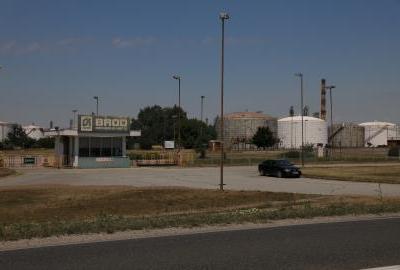Istražujemo
WHOSE IS THE ENERGY SECTOR IN BIH: Gas and oil to the Russians, electricity to the Chinese
Investments in energy and infrastructure sector are a strategic weapon in the hands of the emerging imperial forces like Russia, China and Turkey. They are used to influence political decision-making process of the countries in transition, and these are all the countries of the Western Balkans, thus also Bosnia and Herzegovina. The strongest influence is exercised in the sectors related to oil and natural gas production, processing and distribution, whilst the electricity, mining and infrastructure sectors do not significantly fall behind. Since the economy of the Western Balkan countries rests on the aforementioned sectors, these investments lead to the phenomenon of so-called “captured country”.

The Russian capital officially enters the BiH market for the first time in 2007
According to the information found on the statistical web portal of the Central Bank of Bosnia and Herzegovina (CBBIH), the inflow of foreign direct investments as of December 2018 amounts 14 billion and 269 million KM. Analyses of the data available indicates that the highest growth of the foreign direct investments in Bosnia and Herzegovina in the period 2003 – 2018 was recorded in 2007 or more precisely a growth of approximately 2.5 billion KM compared to the previous year of 2006. Accidentally or not, introduction of the Russian capital to the market of Bosnia and Herzegovina is actually related to 2007, and the data reveal that it was not present or was rather statistically insignificant in the previous years. Namely, the Russian company NeftGazinKor, operating under Zarubežnjeft, had in 2007 acquired the entire petroleum industry of Republika Srpska (Oil Refinery in Brod, Oil Refinery in Modriča and the oil and petroleum products distribution company “Petrol”) for 236 million KM, and the total Russian investments amounted 332.8 million KM that year.
The CBBIH data clearly indicate that the Russian direct investments have continued since 2007, except for 2013, 2016 and 2017 when no significant changes in the investments had been observed. The CBBIH states that the largest portion of the previous direct investments of Russia in BiH had been directed to the production of coke and refined petroleum products.
Apart from the petroleum sector, Russia’s investments in Bosnia and Herzegovina are evident in the banking sector through Sber bank, and ties between the Russian companies and the domestic companies engaged in natural gas distribution and gasification (directly or through companies from Serbia) are clear, whilst companies making investments in electricity, mining, metal and other heavy industry sectors are frequently owned by controversial businessmen whose operations are tied to Russia or one of the former Soviet Republics and the investment in the infrastructure sector is reserved for the Russia’s strategic partners at the global level, China and Turkey.
However, one should not forget the fact that from a political point of view the year 2007 is not the key year for introduction of Russian capital to the BiH market. The ground was prepared a year before, in 2006, when Milorad Dodik, president of the SNSD, was given the mandate to constitute the Government of RS from the then-president of RS, Dragan Čavić, who was head of the SDS at that time. Dodik’s Government was appointed on 28th February 2006 and as it was year of the General Elections, SNSD had achieved grand victory in October at all levels of authority primarily thanks to the nationalist rhetoric on the independence of Republika Srpska and promises concerning huge projects, and becomes an unavoidable political factor in BiH. The political position and capacity of SNSD has been growing stronger ever since, and Milorad Dodik does not hide his role of the Russia’s key player in BiH, but also in the Balkans. It is important to stress that the process of spreading Russia’s influence in BiH was running in parallel with the same process in the neighboring Croatia, so thanks to that Milorad Dodik in BiH got a significant political ally in Dragan Čović, president of HDZ BiH. It is noticeable, although to a lesser extent, that political parties based in Sarajevo have also not remained immune to the Russian influence, so from time to time the “Dodik-Čović axle” finds a partner to implement its plans.
 (Milorad Dodik and Dragan Čović)
(Milorad Dodik and Dragan Čović) Getting into petroleum sector
Processing of oil and petroleum products in Bosnia and Herzegovina is tied to two refineries: Oil Refinery in Brod and Oil Refinery in Modriča. Nestro petrol and Energopetrol are the largest companies for the distribution of oil and petroleum products in BiH. The majority owner of the two refineries and of Nestro petrol is the Russian company NeftGazinKor, which is a subsidiary of “Zarubežnjeft”, and Energopetrol is majority-owned by the Croatian company INA in which Hungarian MOL is the majority shareholder through which the capital of the Russian company Surgutneftegas was running in the period 2009-2011 by way of 21.2% of the shares.

(Oil Refinery in Brod)
After criminal privatization and onerous contract with the British company Vitol (2003) the oil industry in Republika Srpska was devaluated and presented with a fait accompli: bankruptcy or sale. With coming of Milorad Dodik and SNSD to the power in Republika Srpska the Law on Privatization of State-Owned Capital was amended in 2006 and a protocol on sale of Republika Srpska oil industry signed with the Russian company NeftGazinKor. The contract on sale of Oil Refinery in Brod, Oil Refinery in Modriča and the distribution company “Petrol” worth 236 million KM was signed on February 2, 2007 in Banja Luka. The buyer committed to meeting the following contractual obligations: processing of crude oil in the amount of 4.2 million tons annually, processing of oil and lubricants in the amount of 130.000 tons annually, placement of petroleum products through the distribution company in the amount of 2.500 tons annually, construction of a railway between the Oil Refinery in Brod and Oil Refinery in Modriča, keeping the existing number of employees and other obligations...
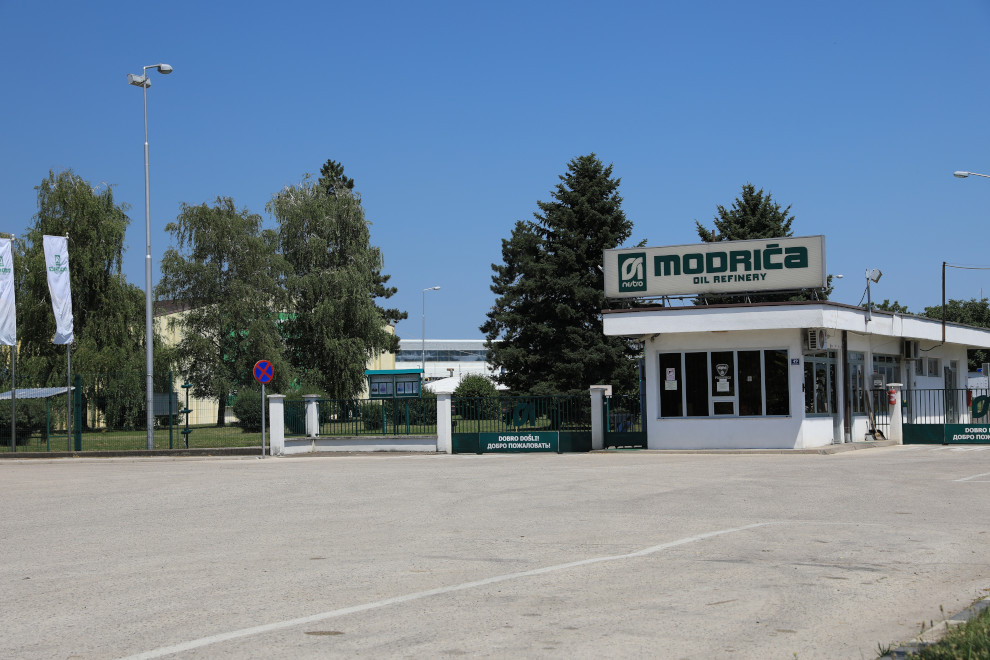
(Oil Refinery in Modriča)
NeftGazinKora had never met majority of the obligations, and the company’s losses are piling up. On December 31, 2019 the accumulated loss of the Oil Refinery Brod amounted 742.397.977 KM, Oil Refinery Modriča 63.745.619 KM, Nestro Petrol 9.774.506 KM. The key reasons of debt accumulation in the petroleum sector, according to the research of Radio Free Europe, are insufficient quantities of produced oil and petroleum products and high transportation costs due to lack of infrastructure (promised railway between Refinery in Brod and Refinery in Modriča), and it all underpins the thesis that Russia’s investments in the petroleum sector in BiH are a political rather than a commercial project.
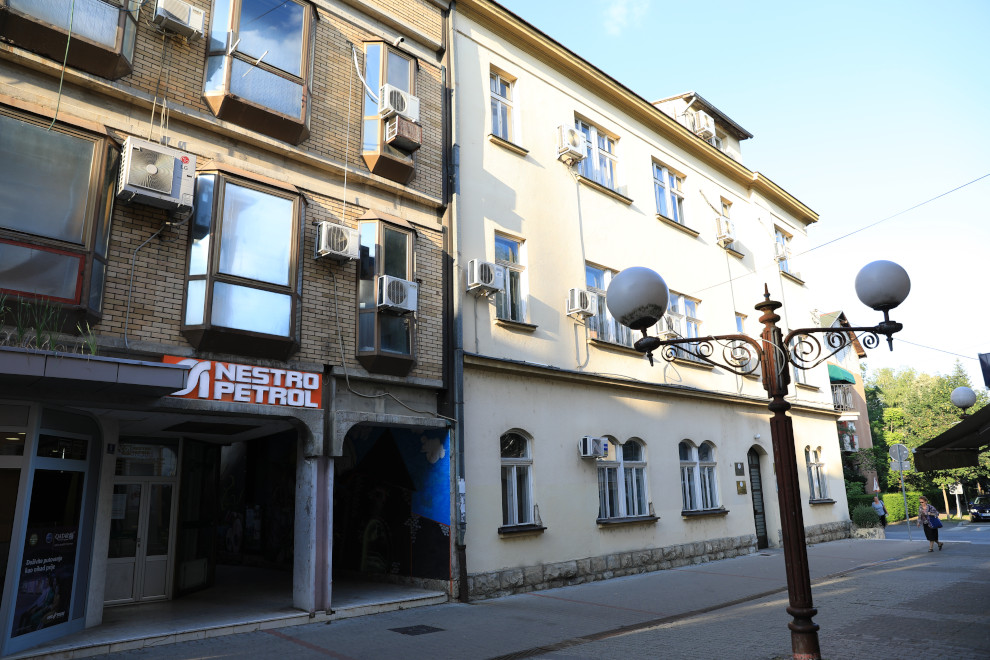
(Nestro Petrol)
According to available audit reports, capability of these companies to continue their operations depends on continuous financial support of the parent company, and that is Russian Zarubežnjeft, which means that they have been “keeping alive” for years now thanks to the financial injections from Russia.
Federation of BiH also did not remain immune to the Russian influence in the petroleum sector. Namely, the FBiH Government had in 2006 carried out recapitalization of the company Energopetrol, selling 67% of ownership to INA (Croatia) and MOL (Hungary) consortium, while the FBiH Government owns 22% and the remaining 11% is owned by small shareholders. Surgutneftegas, a company from Siberia that according to the press reporting has very close ties to the Russian leadership, became a shareholder of the Hungarian company MOL in 2009. The majority owner of the Croatian company INA is the aforementioned Hungarian MOL, which holds 47% of the shares. INA bought MOL’s ownership interest (33.5%) in 2016, and already in 2018 it becomes the owner of 88% of Energopetrol shares through recapitalization, where the ownership interest of the FBiH and the small shareholders dropped to 8% and 4%, respectively. According to the last available financial report, the accumulated loss of Energopetrol is 215.515.632 KM, the company’s operations depend on INA, and INA’s operations are dictated from Russia, although Hungary in 2011 repurchased shares of Surgutneftegas in MOL.
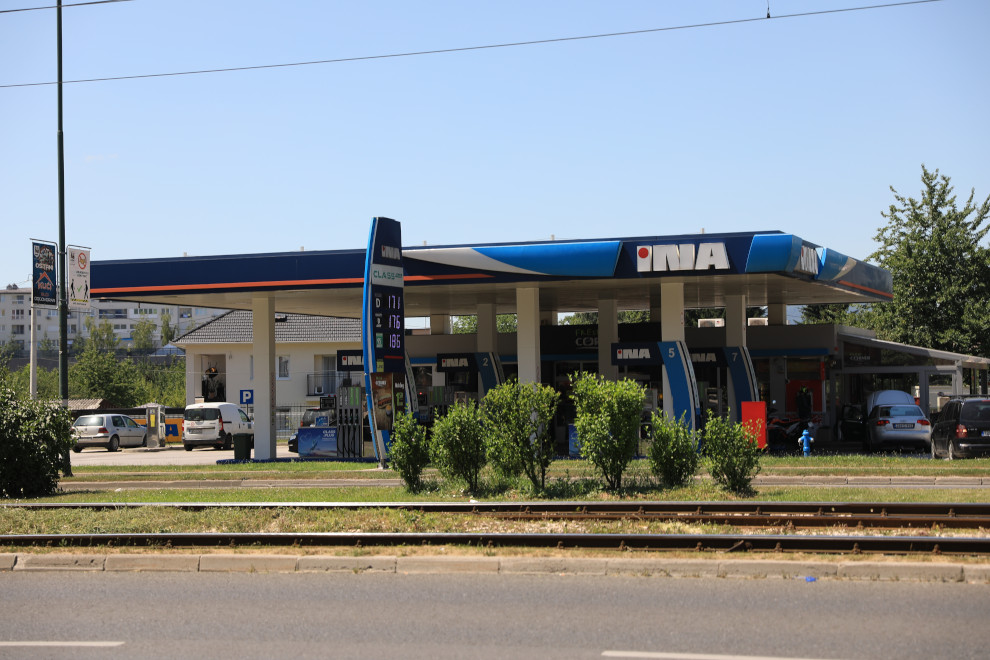
Natural gas – Russian or nobody’s
There is no natural gas exploitation in BiH so the country relies on import of this fuel and presently there is only one entry point for gas in Sepak, near Zvornik. The gas is delivered to BiH through a several thousand kilometers long gas pipeline from Russia through Ukraine, Hungary and Serbia.
Three companies are engaged in transport of natural gas within BiH: BH-Gas d.o.o. Sarajevo which is majority state-owned company; Sarajevo gas a.d. Istočno Sarajevo in which the majority shareholder is the RS Share Fund (30%); and Gas promet a.d. Istočno Sarajevo in which the majority shareholder is the public enterprise “Srbijagas” from Novi Sad (40%) that is under the control of Russian “Gasprom”.
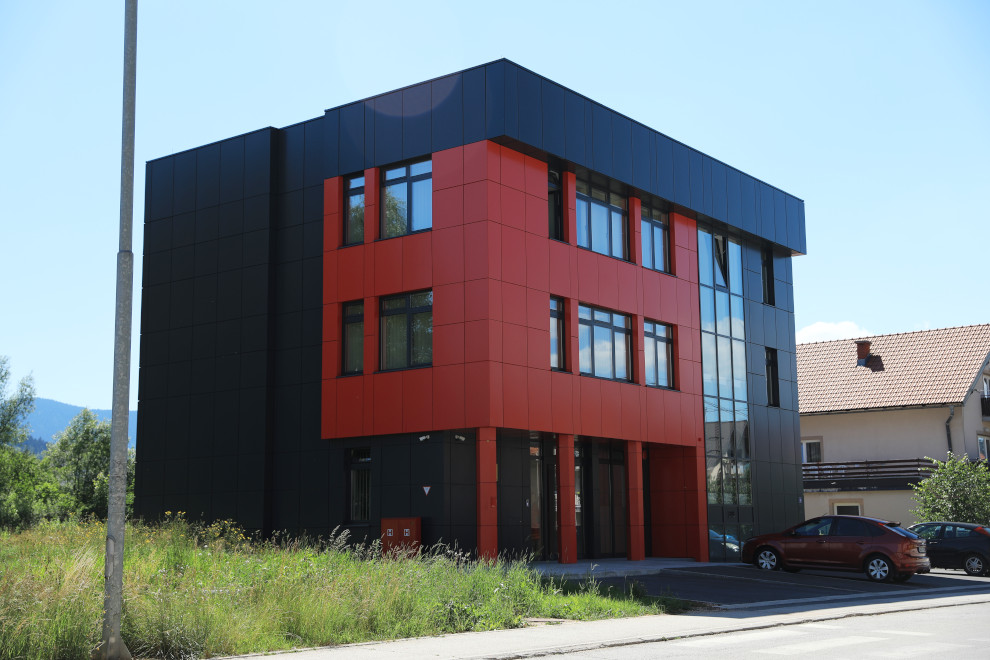
(Gas promet a.d. Istočno Sarajevo)
Gas distribution and trade in BiH is done by 9 companies, and by analyzing the ownership structure and operations of these companies it is easily determined that a portion of these companies is either directly or indirectly associated with Russian gas companies. “Sarajevo-gas” d.o.o. from Sarajevo is owned by Sarajevo Canton. Visoko Municipality is owner of the public enterprise “Visoko ekoenergija d.o.o. from Visoko. The majority ownership of the company “Sarajevo-gas” a.d. from Istočno Sarajevo, as already stated, is held by the RS Share Fund. The city of Zvornik is majority owner of the company “Zvornik stan” a.d. from Zvornik. CNG Energy d.o.o. from Banja Luka has been operating at a loss for years now and it has not implemented a single pompously announced project. It is owned by CGE Engineering Srl from Milan (Italy). The ownership structure of the company “Prvo gasno društvo’’ d.o.o. from Zvornik, whose name resembles that of the company “Prvo plinarsko društvo” from Croatia associated with the destruction of Aluminij in Mostar, leads to Pančevo in Serbia and the company Bedem Energy Solutions that does distribution of compressed natural gas (CNG). “Bijeljina gas” d.o.o. from Bijeljina is majority-owned by “Srbijagas” from Novi Sad, direct partner of the Russian “Gasprom”. The company GAS-RES d.o.o. from Banja Luka is owned by the RS Government. Director of the company “Energy prime RS” d.o.o. from Trebinje is Tomislav Lovrić, former executive director for economic, financial, accounting and commercial affairs in Mostar’s “Aluminij”, and owner of this company is a company with a similar name “Energy prime” from Mostar owned by Marijan Primorac, who is also the owner of the company “Primorka” known for its operations with “Aluminij”. Alumina d.o.o. Zvornik is a subsidiary of the company “Alumina Factory Birač” that is in liquidation thanks to money laundering by the Russian tycoon Vladimir Romanov through Lithuanian Ukio bank.
The gas monopoly that Russia has in BiH is visible from the previous statements. A research done by GONG has showed in detail that situation is the same in Croatia, and it is not much better in other countries of the Balkans. Any attempt to lessen this monopoly through diversification of natural gas sources gets curtailed by the political structures that overtly advocate for Russian interests in the Balkans.
The latest example of “Russian players” activation in Bosnia and Herzegovina is blockade of the construction of “Zagvozd – Novi Travnik” gas pipeline, known as “South Interconnection”, by the RS Government, about which Žurnal wrote at the beginning of 2019. “South Interconnection” would be a branch of the Ionian-Adriatic Pipeline that would supply Bosnia and Herzegovina with gas from Azerbaijan, thus making Bosnia and Herzegovina completely independent of Russian gas.
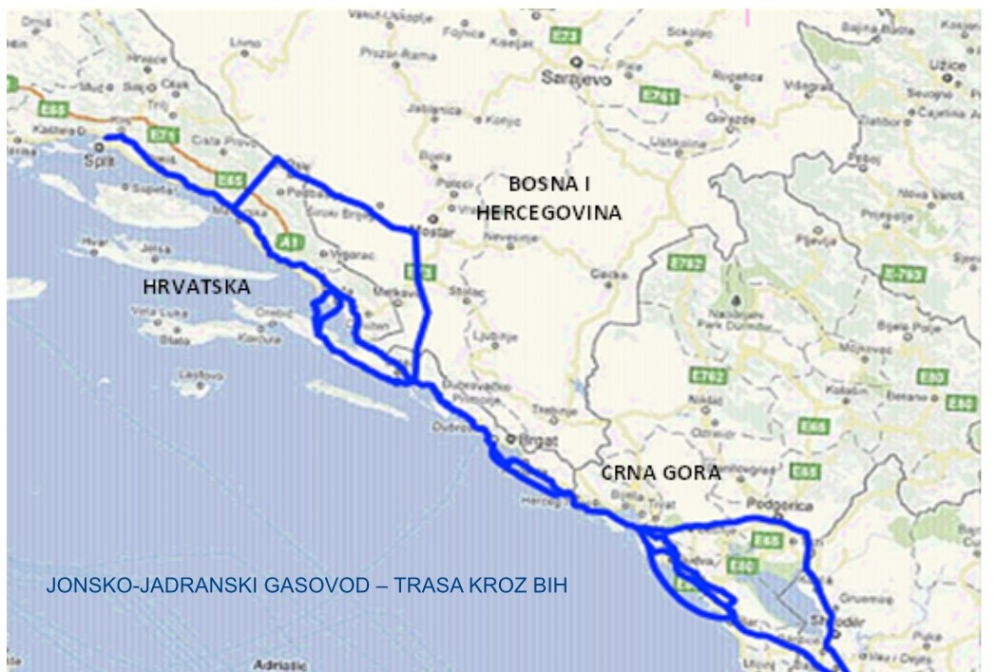
On the other hand, one can see clear support to strengthening of Russian gas monopoly through announcement of construction of “TurkStream” gas pipeline that would lead to Republika Srpska.
Electricity sector – through tycoons and China
Thanks to the mineral and water resources, favorable winds and a large number of sunny days the electricity sector in BiH should be driver of development, resistant to external influences. However, this sector has been used for decades to extract money to private and party budgets, to employ party activists, relatives of party officials and numerous other criminal and corruptive activities. Such a stepmotherly attitude of the country towards the electricity sector results in lack of funds necessary for maintenance of existing facilities, and construction of new ones, which has opened doors to unfavorable borrowing and investments of businessmen whose capital is of dubious origin.
According to report of the State Electricity Regulatory Commission (SERC) a total of 16.074 GWh of electricity was generated in 2019. Thermal power plants generated 9.613 GWh, hydropower plants 5.650 GWh, wind farms 254 GWh, small-scale renewable sources (small hydropower plants, wind farms connected to the distribution system, solar and biofuel plants) 536.94 GWh and industrial power plants 20.82 GWh.
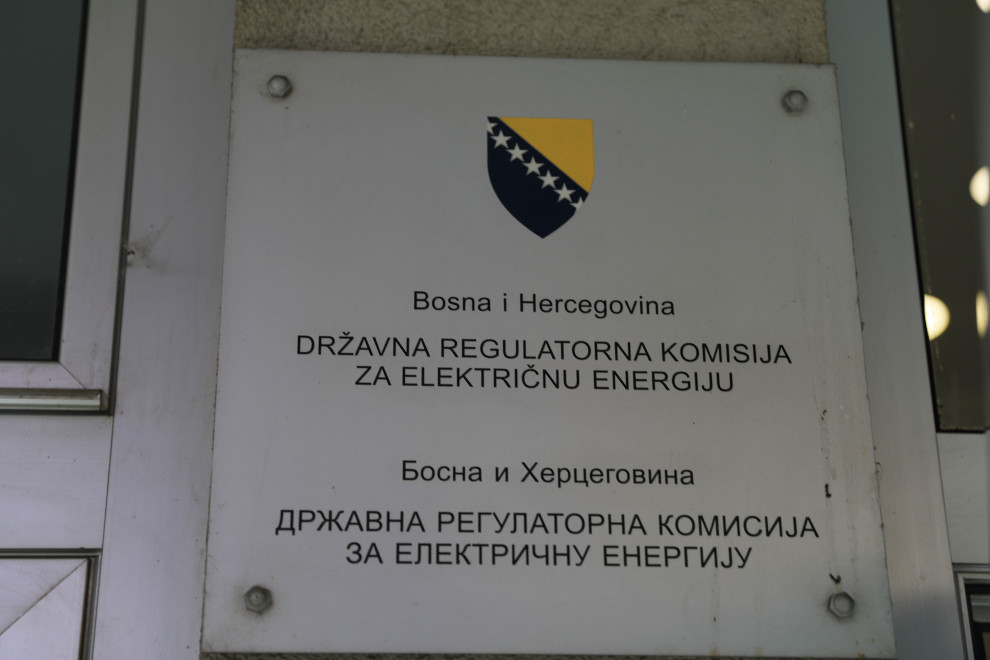
(State Electricity Regulatory Commission - SERC)
Electricity network in BiH is supplied by 5 thermal power plants (TPP), whereof four (Tuzla, Kakanj, Ugljevik and Gacko) are state-owned, and one (Stanari) is owned by a private company. Although being the biggest electricity generators, the state-owned TPPs are according to the available audit and financial reports also the biggest lossmakers. This is caused by obsolete technology that requires more frequent plant maintenance, on one side, but also imprudent business operations, excessive employment and other irregularities on the other side. Unlike the state-owned TPPs, “Stanari” TPP, which is owned by private company “EFT” of Serbian businessman Vuk Hamović, is generating profit year after year thanks to the benefits received from the authorities in Republika Srpska. It is important to mention the failed project of the new TPP block in Ugljevik for which the concession was granted to the company “Comsar Energy Group” owned by Russian businessman Rashid Serdarov. There is also an ongoing project of Block 7 TPP “Tuzla” to which the European Energy Community (EEC) has objected and whose construction is planned with the funds of the Export-Import bank of China (Exim).
Hydropower plants (HPP) are second in importance segment of the BiH electricity sector. All existing big HPPs in BiH are state-owned. The HPPs are also recording operating losses, although to a lesser extent than the thermal power plants. Construction of new hydropower facilities is financed by loans, and the most recent example is the construction of HPP “Dabar” that is financed and constructed by companies from China.
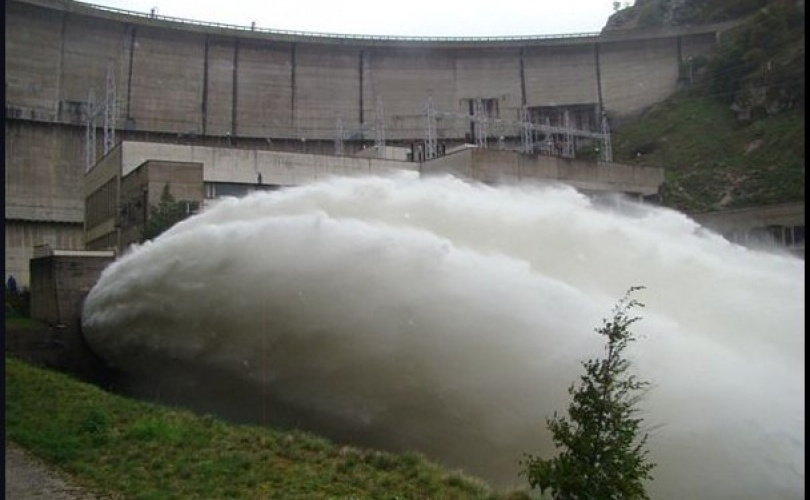
Two only wind farms (WF) in BiH are “Mesihovina” and “Jelovača”. WF “Mesihovina” is state-owned and its construction was financed by a loan, and WF “Jelovača” is the investment of company F.L. Wind d.o.o, subsidiary of the company FEAL d.o.o. whose operations are associated with Mostar’s Aluminij that, let us recall, was destroyed because it purchased expensive electricity from the company PPD associated with Russian capital, of which Žurnal wrote a number of times.
Other small-scale electricity producers (small hydropower plants, wind farms connected to the distribution system, solar and biofuel plants) are mostly owned by businessmen with capital of dubious origin, and the most recent example is the announcement of solar power plant construction in Bileća by company “EFT” that, as we previously stated, is owned by Vuk Hamović, whose capital is tied to Europaksis bank based in Russia.
Mines – state-owned lossmaking, private profiting
It has been already said that BiH disposes of different mineral resources, so the mines are certainly significant economic factor. Among others, brown coal, lignite, iron ore and bauxite mines stand out.
Brown coal and lignite mines are connected to the thermal power plants. They are mostly state-owned, and generally, as majority of public enterprises, they operate at a loss. There are most certainly brown coal and lignite mines that are privately owned. Brown coal mine “Miljevina” is owned by Gordan Pavlović, a businessman from Foča who is associated with dubious business operations related to the Alumina Factory “Birač”. Lignite ore in Stanari is used for the operations of TPP “Stanari” that is owned by already mentioned private company “EFT”, and the concession for lignite exploitation was awarded under utterly suspicious circumstances.
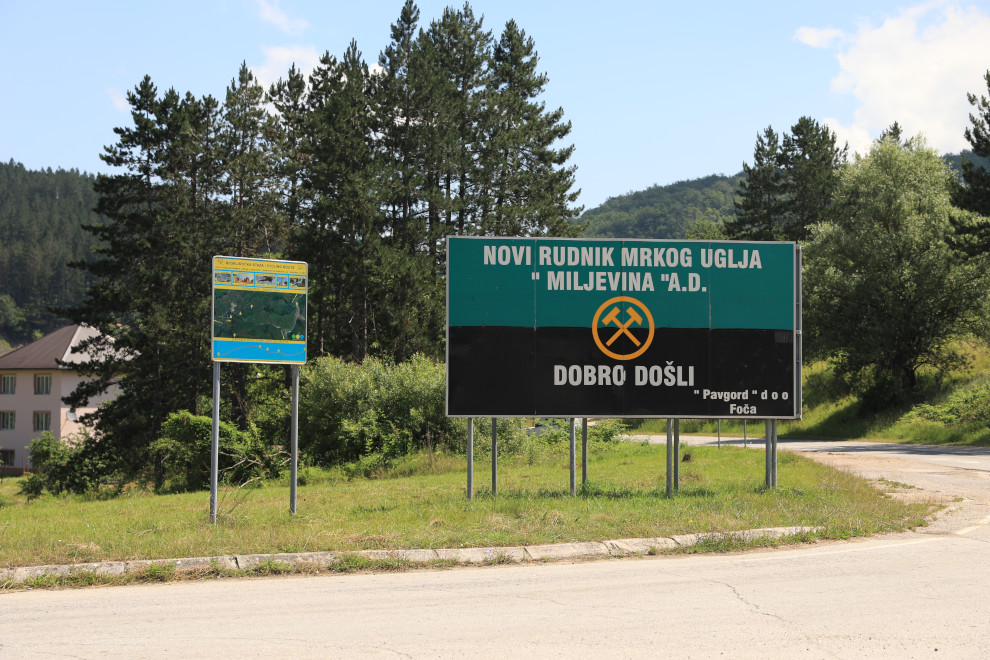
(Brown coal mine “Miljevina”)
Iron ore mines “Ljubija” are 49% owned by the company “AcelorMittal” and 51% state-owned. British company “AcelorMittal” is owner of the Steel plant Zenica in which the ore exploited at the iron ore mines “Ljubija” is processed. The attempts of the Republika Srpska to sell the state-owned capital in the iron ore mines “Ljubija” to the companies that are, according to the information available to Žurnal, associated with Russia have lately become more frequent.
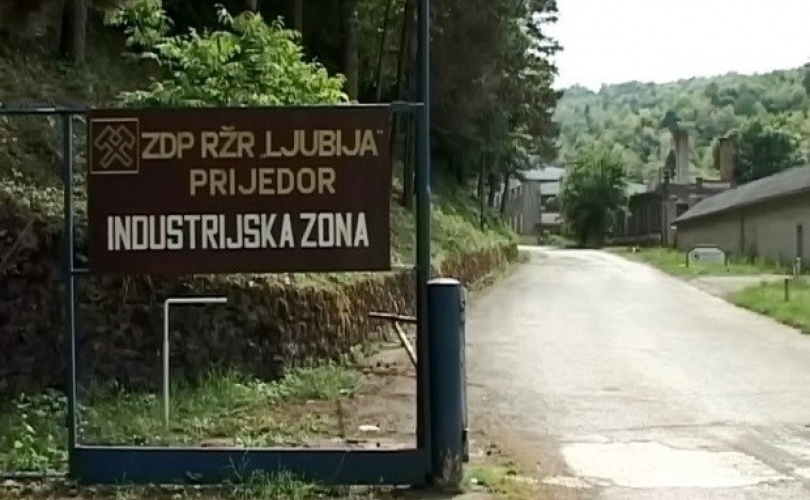
(Iron ore mines “Ljubija”)
With regards to bauxite mines, the most interesting one in terms of foreign investment was the mine in Posušje. Businessmen from Croatia, who have business cooperation with companies from Russia, were interested in privatization of this mine, which would be realized in a package with the Mostar Company “Aluminij”, and Žurnal wrote about it a number of times.
Chinese-Turkish investment in infrastructure
When it comes to the infrastructural projects, credit financing and constructions by Russia’s strategic partners, China and Turkey, are becoming quite popular in the Balkans.
Chinese investments in BiH, according to the CBBIH’s reports, had so far mainly related to wholesale and retail. However, civil engineers from China, who are already constructing hundreds of kilometers of highway in Serbia and Montenegro, are expanding their business to Bosnia and Herzegovina through Republika Srpska. According to the portal Capital, the Chinese company “Shandong Hi-Speed” was granted concession for construction of “Banja Luka-Prijedor” highway under exceptionally unfavorable conditions.

The construction companies from Turkey that are already constructing highway “A1” near Zenica intend to extend this activity with construction of Sarajevo-Belgrade highway, all under the diplomatic auspice of the Turkish President Recep Tayyip Erdoğan.
A captured country
Just a glance at the previously presented facts about investments in energy and infrastructure sector in BiH clearly reveals that the so-called “capturing of the country” is in effect. Investments of Russia and its strategic partners in energy and infrastructure sectors are leading surgical precision to dependency of these sectors on their “good will” that is conditioned by political decision-making, and it primarily concerns the EU and NATO integration. In case of disobedience, the consequences would be catastrophic, and only some of them can be flagged: dismissal of tens of thousands of employees, freezing of cities and companies that are supplied with natural gas, inability to maintain power plants and lack of funds to build new ones, suspension of infrastructure projects and more.
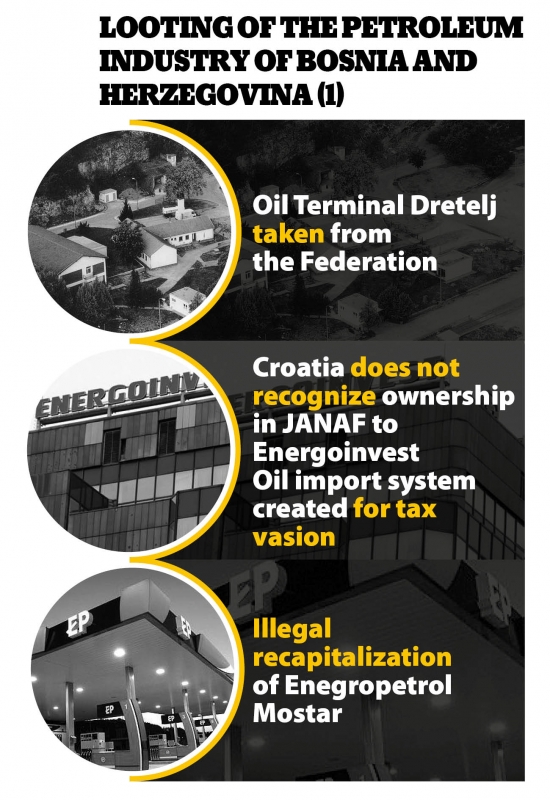
According to data available, more than 35.000 persons are employed in the oil and gas processing and distribution sectors, the energy sector and the mining sector in BiH (not including the infrastructure sector). The consequences of the collapse of these sectors in BiH would be incalculable, because the survival and development of most other economic sectors depend on them. Dismissal of employees would lead to the breach of social peace, and there would be a collapse of the pension, tax and other systems.
Due to the lack of other gas sources “turning off the gas valve” in Russia would lead to freezing of households and economy during the winter in Sarajevo Canton, Istočno Sarajevo, Visoko, Zvornik, Bijeljina and other cities. An example of such a “gas crisis” happened in January 2009, when due to a gas conflict between Russia and Ukraine all of Europe, including BiH, was freezing for 2 weeks.
As already mentioned, most large power plants (thermal power plans and hydropower plants) use outdated technology that requires frequent maintenance. Spare parts for such technology are mostly produced in Russia or in one of the former Soviet Republics. If the data on electricity production in BiH in 2019 are viewed it can be seen that thermal power plans and hydropower plants generated 15.263 GWh out of 16.074 GWh of total production, which is almost 95% of the produced electricity. Given that own funds have not been provided for the modernization and construction of replacement power plants, it is not difficult to conclude that problems in the functioning of thermal and hydropower plants, due to the impossibility of their maintenance, would mean the collapse of the electricity sector.
Due to the lack of own funds for the implementation of large infrastructure projects BiH is forced to borrow, but also to accept various requirements and conditions set by investors, who, as mentioned before, mostly come from China and Turkey, and rejection would mean a complete suspension of development of this sector.
All of the above clearly show that “capturing of the country” is going quite easy and fast, because Bosnia and Herzegovina is a fertile ground for that both politically and socioeconomically, and it is even clearer that the “liberation of the country” will be very difficult and slow if citizens ever make the decision to move in that direction.
(zurnal.info)





